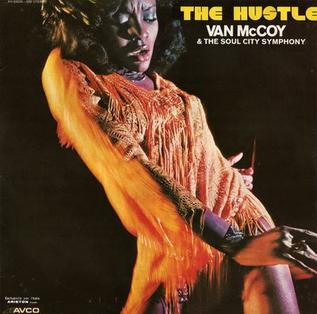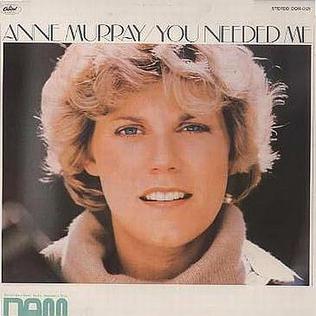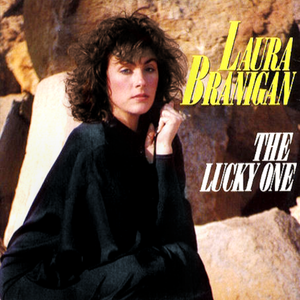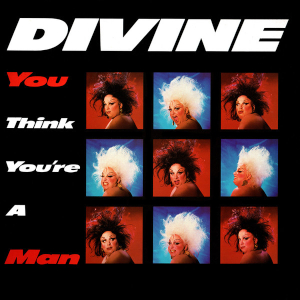
"99 Luftballons" is a song by the West German band Nena from their 1983 self-titled album. An English-language version titled "99 Red Balloons"(German: Neunundneunzig Rote Luftballons), with lyrics by Kevin McAlea, was also released by Nena on the album 99 Luftballons in 1984 after widespread success of the original in Europe and Japan. The English version is not a direct translation of the German original and contains lyrics with a somewhat different meaning. In the US, the English-language version did not chart, while the German-language recording became Nena's only US hit on the Billboard Hot 100.
"I Feel for You" is a song written by American musician Prince that originally appeared on his 1979 self-titled album. The most successful and best-known version was recorded by R&B singer Chaka Khan and appeared on her 1984 album of the same name. It became the recipient of two Grammy Awards for Best R&B Song and Best Female R&B Vocal Performance for Khan.

"Uptown Girl" is a song written and performed by American musician Billy Joel from his ninth studio album An Innocent Man (1983), released in September 1983 as the album's second single. The lyrics describe a working-class "downtown man" attempting to woo a wealthy "uptown girl". The 12" EP has the tracks "My Life", "Just the Way You Are" and "It's Still Rock and Roll to Me", whereas some 7" single versions featured "Careless Talk" as a B-side.

"Time After Time" is a song by American singer Cyndi Lauper from her debut studio album, She's So Unusual (1983). It was released as the album's second single in March 1984, by Epic and Portrait Records. Written by Lauper and Rob Hyman, who also provided backing vocals, the song was produced by Rick Chertoff. It was written in the album's final stages, after "Girls Just Want to Have Fun", "She Bop" and "All Through the Night" had been written or recorded. The writing began with the title, which Lauper had seen in TV Guide, referring to the 1979 film Time After Time.

"Heaven" is a song by the Canadian singer and songwriter Bryan Adams recorded in 1983, written by Adams and Jim Vallance. It first appeared on the A Night in Heaven soundtrack album the same year and was later included on Adams' album Reckless in 1984. It was released as the third single from Reckless and reached number one on the U.S. Billboard Hot 100 in June 1985, over a year and a half after the song first appeared on record. The single was certified Gold in Canada in 1985.

"Trouble" is the debut solo single by Lindsey Buckingham, released in 1981 from his debut solo album Law and Order. The single was Buckingham's first hit as a solo artist, peaking at number nine in the US and number 31 in the UK, where it remained charted for seven weeks. In Australia, it topped the chart for three weeks and became the eighth biggest-selling single of 1982. It experienced similar levels of success in South Africa, reaching number one for two weeks and finishing 1982 as the country's 13th best-selling single.

"White Lines (Don't Don't Do It)" is a song by American hip hop recording artist Melle Mel, released as a 12" in 1983 on Sugar Hill Records. The song, which warns against the dangers of cocaine, addiction, and drug smuggling, is one of Melle Mel's signature tracks. It was written by him with Sylvia Robinson. The bassline is taken from a performance of the Sugar Hill house band (featuring bassist Doug Wimbish) covering "Cavern", a single by the New York City band Liquid Liquid.

"Ghostbusters" is a song written by American musician Ray Parker Jr. as the theme to the 1984 film Ghostbusters, and included on its soundtrack. Debuting at number 68 on June 16, 1984, the song peaked at No. 1 on the Billboard Hot 100 on August 11, staying there for three weeks, and at No. 2 on the UK Singles Chart on September 16, staying there for three weeks. The song reentered the UK Top 75 on November 2, 2008 at No. 49 and again on November 5, 2021, at No. 38.
"Wherever I Lay My Hat (That's My Home)" is a song written by Marvin Gaye, Barrett Strong and Norman Whitfield, and first recorded by Gaye in 1962. It was the B-side to his 1969 hit "Too Busy Thinking 'Bout My Baby". Paul Young's version of the song was a UK No. 1 single for three weeks in July 1983.

"Pass the Dutchie" is a song performed by British-Jamaican band Musical Youth, taken from their debut studio album, The Youth of Today (1982). It was produced by Toney Owens from Kingston, Jamaica. The single peaked at the top of the UK Singles Chart. Outside the United Kingdom, "Pass the Dutchie" topped the charts in at least five other countries, including Australia, Canada and Ireland, as well as peaking within the top ten of the charts in Iceland and the United States. The single sold over five million copies worldwide.

"Rebel Yell" is a song by English rock musician Billy Idol. It is the title track of his second album Rebel Yell (1983), and was released as the album's lead single in January 1984 by Chrysalis Records. Initially, it only reached No. 62 in the UK and No. 46 in the US upon its release. However, a 1985 re-issue proved to be a big hit, peaking at no. 6 in the UK. The song received wide critical acclaim and in 2009 was named the 79th best hard rock song of all time by VH1 based on a public vote.

"Candy Girl" is the debut single by New Edition from their debut album Candy Girl. It was released as a single in late February 1983 and the song hit number one on the UK Singles Chart, becoming the 31st-best-selling single of the year. It also peaked at number 1 on the Hot Black Singles chart, passing Michael Jackson’s song "Beat It" on May 14, 1983.

"The Hustle" is a disco song by songwriter/arranger Van McCoy and the Soul City Symphony. It went to No. 1 on the U.S. Billboard Hot 100 and Hot Soul Singles charts during the summer of 1975. It also peaked at No. 1 on the Canadian RPM charts, No. 9 on the Australian Singles Chart and No. 3 in the UK. It would eventually sell over one million copies. The song won the Grammy Award for Best Pop Instrumental Performance early in 1976 for songs recorded in 1975.

"You Needed Me" is a song written by Randy Goodrum, who describes it as being about "unconditional undeserved love". It was a number-one single in the United States in 1978 for Canadian singer Anne Murray, for which she won a Grammy Award. In 1999, Irish pop band Boyzone recorded a hit cover of the song that reached number one on the UK Singles Chart.

"High Energy" is a song co-written and co-produced by Ian Levine and Fiachra Trench, and performed by American dance singer Evelyn Thomas. The song was very popular in dance clubs around the world and topped the American dance chart in September 1984. It also spent four weeks atop the singles chart in West Germany and peaked at number 5 in the UK. It became one of the earliest successful songs within the genre of music that has come to be known as hi-NRG. On the SoBe Music compilation album Gay Classics, Volume 1: Ridin' the Rainbow, the liner notes describe the song as "...engagingly captur[ing] the spirit of the genre through uplifting lyrics tightly fused with dazzling synth work".

"Just Be Good to Me" is a song by the S.O.S. Band, written and produced by Jimmy Jam and Terry Lewis for their fourth studio album, On the Rise (1983). "Just Be Good to Me" was released as the lead single from On the Rise in March 1983, by Tabu Records.

American R&B/soul singer Chaka Khan has released thirteen albums during her solo career. Her first solo single was "I'm Every Woman", also released in 1978. She has released a total of 46 solo singles throughout her career. Khan has placed four albums in the top twenty of the Billboard albums chart, scored one top 10 and four additional top-40 hits on the Billboard Hot 100. On the Billboard R&B Songs chart, Khan hit the top 10 ten times including five number ones (including two as a featured artist. On Billboard's Dance Club Chart, Khan had six number ones and another number one as a featured artist. On the UK Singles Chart, she has scored three top 10s, eight additional top 40 singles.

"The Lucky One" is a song by American singer Laura Branigan from her third studio album, Self Control (1984). It was released on July 2, 1984, as the album's second single. The song peaked at number 20 on the Billboard Hot 100, becoming Branigan's fifth top-20 entry.

"You Think You're a Man" is a song by American performance artist Divine, released as a single in 1984. The song appeared on the compilation album The Story So Far, released the same year. It was written by Geoff Deane, formerly the lead singer and main songwriter with both the Leyton Buzzards and Modern Romance, and his occasional songwriting partner Keith Miller. Deane later went on to write the cross dressing-themed film Kinky Boots.

"Wired for Sound" is a song recorded by English singer Cliff Richard, released in 1981 as the lead single for his album of the same name. The song reached number 4 in the UK Singles Chart and was certified silver by the BPI for sales over 250,000. The song reached number 2 in Australia and South Africa, and was a hit in a number of European countries. The song was written by Alan Tarney and B.A. Robertson.


















